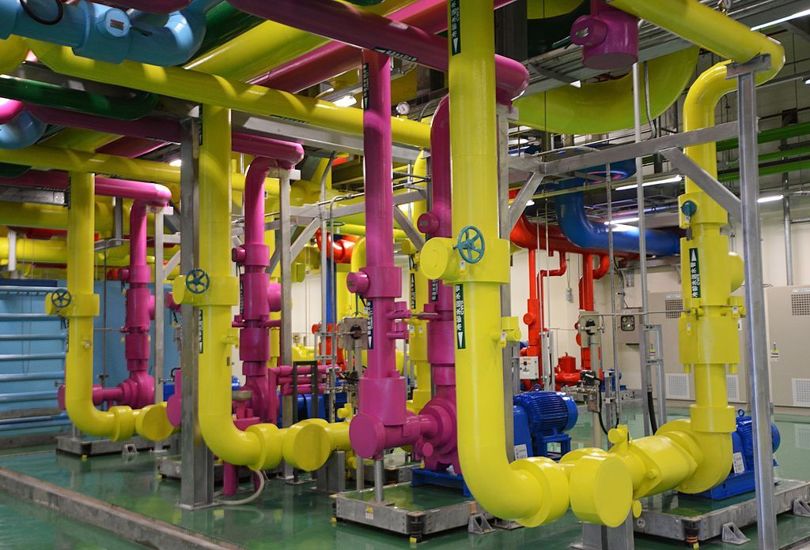Artificial intelligence helped Google to reduce energy consumption of cooling systems in data centers by 40%

Part of the infrastructure of one of Google's data centers in Taiwan
Developers from DeepMind, a subsidiary of Google, have helped the corporation significantly reduce electricity consumption in its data centers. DeepMind co-founder Demis Hassabis claims a reduction in the size of energy bills consumed by the company's equipment by 40%. And it all started a few months ago, when the management of the holding Alphabet Inc. decided to optimize the costs of the company.
After analyzing the energy consumption of Google data centers, it turned out that it’s really necessary to optimize expenses. Google in 2014 used a huge amount of energy - about 4.5 million megawatt-hours. In the same year, 366,903 American households used the same amount. And even if energy costs are reduced by 1%, this could save companies millions of dollars a year. In addition, companies are now trying to look white and fluffy in the eyes of environmentalists. The latter, according to Google, would positively assess the company's energy cost reduction, which would help to further improve its “green” reputation.
Since one of the divisions of Google, the company DeepMind, is engaged in developments in the field of artificial intelligence, the staff of this division was asked to help in solving problems. Earlier, DeepMind developers trained their AI to play video games on the Atari console, and also created the AlphaGo program, which beat Lee Sedol, one of the world's best board game players. Now, DeepMind employees have been tasked with creating something more practical for analyzing the resources consumed by Google. And the unit successfully coped with the solution of this problem.
')

After experiments with the management of the cooling system, the PUE was reduced by 15%.
AI from DeepMind (the so-called weak form of AI) was trained to monitor server equipment and infrastructure elements (for example, cooling systems). For control, 120 different parameters of the data center were allocated, including control of air conditioners, closing or opening windows, fan speed, etc.
“In fact, we were able to build a predictive model that reduces the energy consumption of cooling systems by predicting the time of maximum load on the server equipment,” said Mustafa Suleiman, co-founder of DeepMind. Data center systems are managed in real time in response to the influence of external and internal factors.
Control algorithms were developed after a detailed analysis of information on the work of the company's data centers over five years. Based on the data obtained, it was possible to create an effective predictive model of energy consumption by the data center. The main criterion here is the number of servers and other equipment involved at different times. The AI “fed” data such as equipment temperature, pump speed, cooling equipment activity, amount of energy used, etc.
On this data, the AI was trained and entrusted to manage the real equipment.
“People usually use a variety of physical functional elements to establish control over the data center. The work of a team of people is more or less well-coordinated, but at the same time, people-employees lose sight of many important factors, ”says a representative of DeepMind. And AI can take into account the vast majority of important factors in their work. Due to this, we managed to achieve a 40% reduction in energy use in data center cooling systems.
Now the corporation pays for electricity in different states of the USA from $ 25 to $ 40 per MWh. Reducing the energy consumption of a data center by only 10% can save companies hundreds of millions of dollars over several years. Google bought DeepMind for $ 600 million, so this purchase can pay off very soon.
The created algorithms are self-learning, and can work in a variety of conditions, including unforeseen ones. And this is just the beginning of work. Now DeepMind is trying to convince Google’s management of the need to install additional sensors in data centers that will collect information for control algorithms. Receiving more and more data in real time about the state of the data center, the AI can even more effectively manage its work.
Our other publications:
- How a failure in the data center can lead to the cancellation of thousands of flights of major airlines
- Accidents in data centers that were (almost) impossible to foresee
- QRLJacking: a new type of attack threatens the security of users of a number of services and instant messengers >
- Rating of programming languages in 2016
- How Facebook saved 75% of the energy required to store photos of cats and user selfie
Source: https://habr.com/ru/post/307800/
All Articles